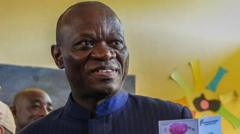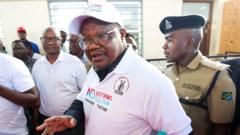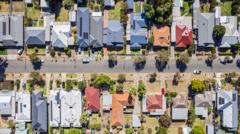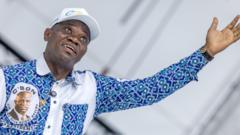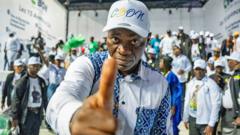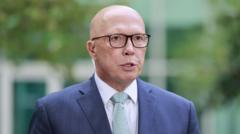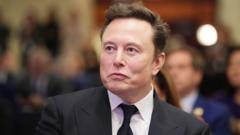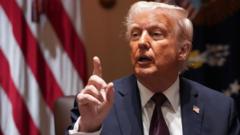Citizens of Gabon are heading to the polls to determine their next president as General Brice Oligui Nguema, the leader of a recent coup, seeks a democratic mandate despite criticisms of his transitional government's legitimacy.
Gabon Votes in Historic Presidential Election After Army Coup
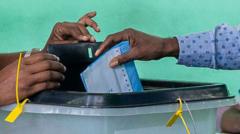
Gabon Votes in Historic Presidential Election After Army Coup
Gabonese citizens prepare to vote for the first time since the military coup that ousted President Ali Bongo, with Gen Brice Oligui Nguema leading the charge.
On Saturday, voters in Gabon will cast their ballots in a historic presidential election, marking the first time in decades that a member of the ruling Bongo family will not appear on the ballot. The election comes 19 months after General Brice Oligui Nguema orchestrated a coup that removed former President Ali Bongo from power and subsequently amended the constitution to permit his own candidacy.
The election features eight candidates, including one woman, Gninga Chaning Zenaba. Other notable figures include former Prime Minister Alain Claude Bilie-by-Nze, as well as two members from the previous ruling PDG party, Stéphane Germain Iloko and Alain Simplice Boungouères. Voter turnout is expected to be significant, with approximately one million individuals eligible to participate.
While official results from the election will begin to emerge as early as Sunday, the counting process may extend into the following week. Analysts and observers note that despite Gabon's wealth in oil and timber, about 35% of the population lives below the poverty threshold, reflecting a broader struggle for economic stability.
During the election campaign, candidates focused on reaching voters in rural areas, while visibility for Gen Nguema's campaign was prominent in the capital, Libreville, where his posters outnumber rivals. Supporters have praised Nguema for taking decisive action in governance, contrasting with previous administrations characterized by inefficiency.
However, criticisms have emerged surrounding the electoral fairness under Nguema's rule, with opponents claiming he manipulated the constitutional framework and instituted age restrictions that disqualified popular rivals. One such opponent, Bilie-by-Nze, labeled Nguema's approach as undemocratic, urging him to "go back to the barracks."
Gabonese voters are expressing a deep desire for change and better governance. Many have echoed calls for addressing the nation's endemic issues, such as corruption and unemployment. As the polls close at 18:00 local time (17:00 GMT) today, the world looks on to see how Gabon's political landscape will shift following this pivotal moment in its history.

